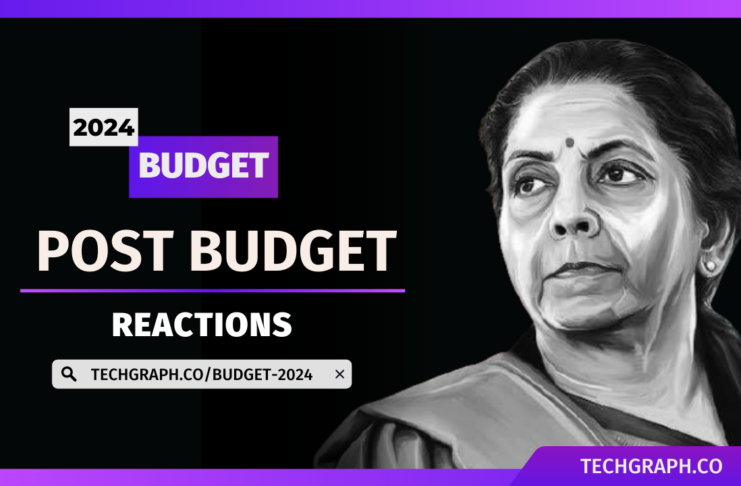In a bid to navigate the financial landscape amid prevailing economic challenges, Finance Minister Nirmala Sitharaman presented the interim budget for 2024, which drew mixed reactions from tax experts and industry leaders.
Here’s a snapshot of the key insights provided by some prominent voices in the business and taxation sectors:
Pallavi Singh Marwah, Senior VP of SPPL
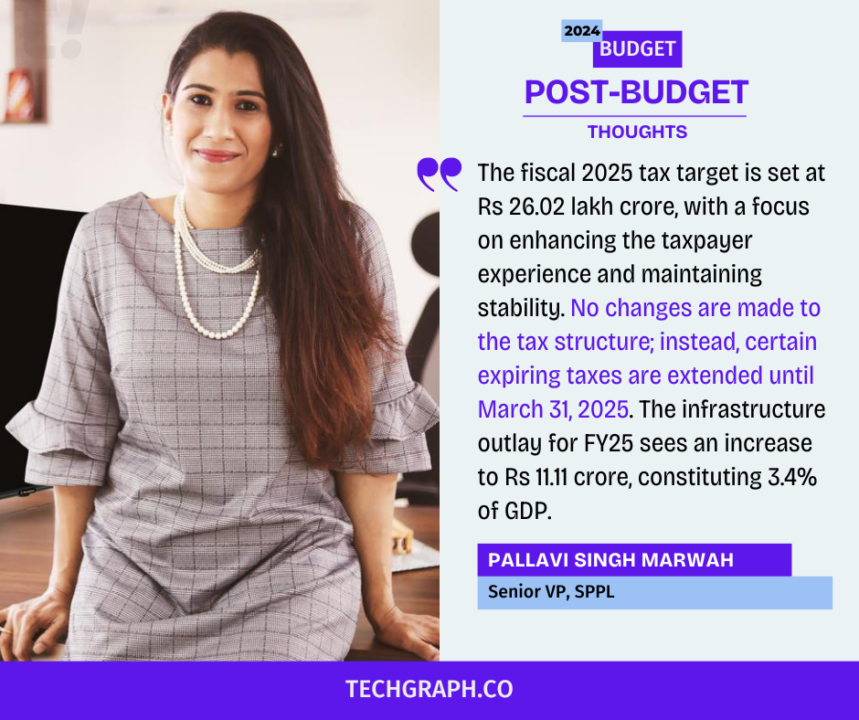
The fiscal 2025 tax target is set at Rs 26.02 lakh crore, with a focus on enhancing the taxpayer experience and maintaining stability. No changes are made to the tax structure; instead, certain expiring taxes are extended until March 31, 2025. The infrastructure outlay for FY25 sees an increase to Rs 11.11 crore, constituting 3.4% of GDP.
Additionally, a 34 crore loan for women entrepreneurs, coupled with a commendable 43% female STEM enrollment and the allocation of 1/3 of government seats, underscores our commitment to achieving equal representation. This commitment not only drives job creation, GDP growth, and poverty reduction but also fosters global collaboration. Encouraging women’s entrepreneurship, particularly among those from economically weaker backgrounds, expands India’s influence in international markets, contributing to broader economic success.”
S Ravi, Founder, Ravi Rajan & Co.
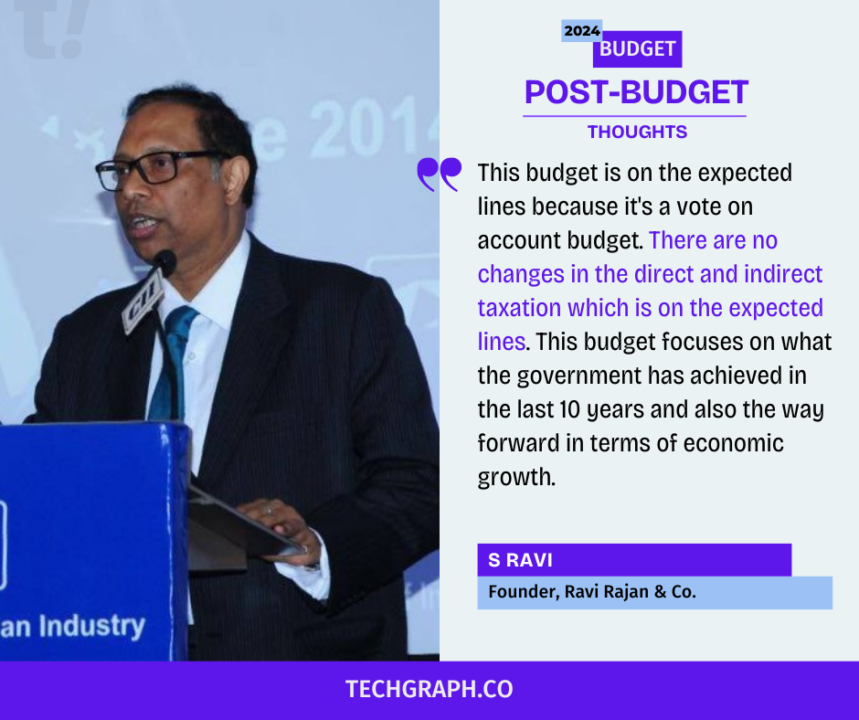
This budget is on the expected lines because it’s a vote-on-account budget. There are no changes in the direct and indirect taxation which is on the expected lines. This budget focuses on what the government has achieved in the last 10 years and also the way forward in terms of economic growth.
The focus is on “Viksit Bharat 2047” which talks about clean energy. A significant announcement is the free 300-unit rooftop solar power scheme, a positive step to encourage clean energy adoption. Additionally, increased allocations are made to the farm sector, farmers, and infrastructure development. So, overall, this budget prioritizes infrastructure and rural development, laying a strong foundation for the future.
Prateek Bansal, Partner, Taxation, White & Brief, Advocates & Solicitors
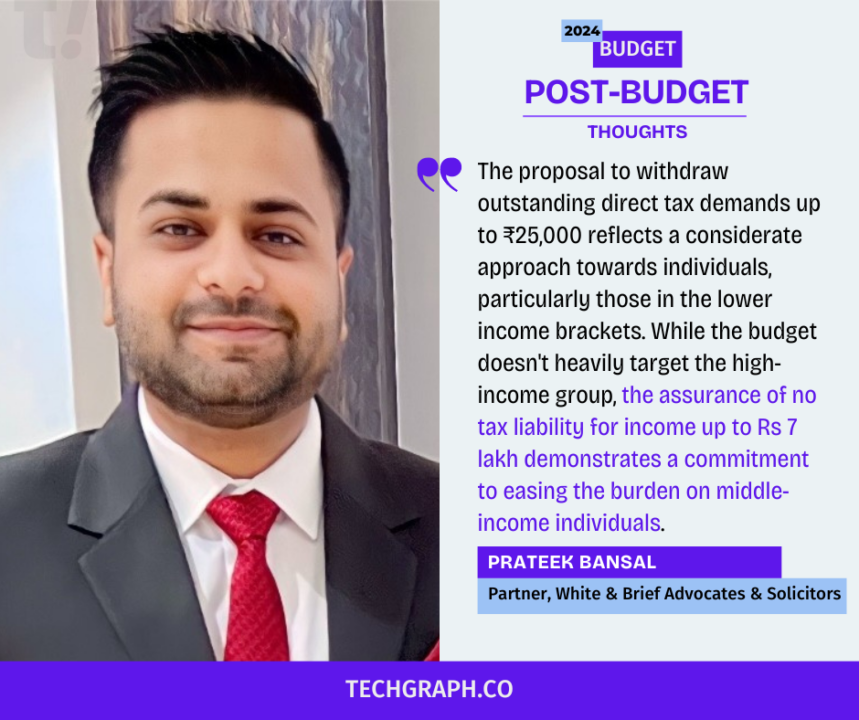
As an interim budget preceding general elections, the focus on social welfare and empowerment initiatives for the masses is a notable highlight. We acknowledge the government’s strategic approach in prioritizing the general public, women’s empowerment, and schemes aimed at uplifting the underprivileged segments of society. The emphasis on people-centric policies rather than significant changes in taxation aligns with the inclusive spirit of the budget.
The proposal to withdraw outstanding direct tax demands up to ₹25,000 reflects a considerate approach towards individuals, particularly those in the lower income brackets. While the budget doesn’t heavily target the high-income group, the assurance of no tax liability for income up to Rs 7 lakh demonstrates a commitment to easing the burden on middle-income individuals.
It’s noteworthy that in this interim budget, there are no substantial alterations in tax structures, whether direct or indirect, including import duties. At White & Brief, we remain vigilant and will continue to provide strategic insights to our clients in navigating the legal landscape shaped by these budgetary announcements.
Smita Singh, Partner – Indirect Tax, Customs & Trade at S&A Law Offices
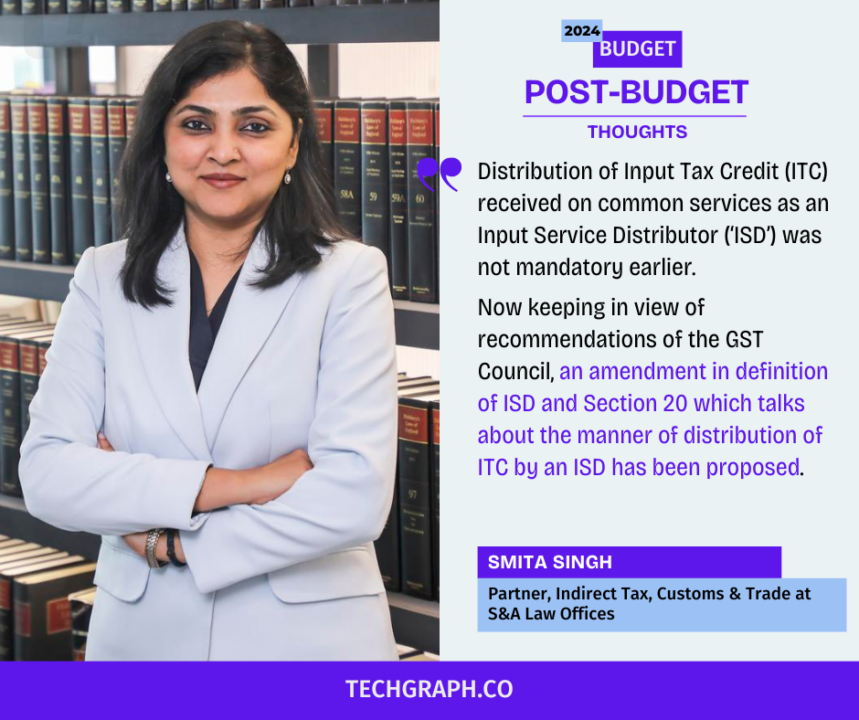
Distribution of Input Tax Credit (ITC) received on common services as an Input Service Distributor (‘ISD’) was not mandatory earlier. Now keeping in view of recommendations of the GST Council, an amendment in the definition of ISD and Section 20 which talks about the manner of distribution of ITC by an ISD has been proposed.
In terms of the amendment (which will come into effect from a date to be notified later), an entity is required to compulsorily register itself as an ISD for distributing the ITC availed on common services and of GST paid under Reverse Charge Mechanism by the distinct person in the same state as of the ISD. However, there is a requirement for a detailed clarification regarding the distribution of GST paid under RCM.
Edul Patel, CEO of Mudrex
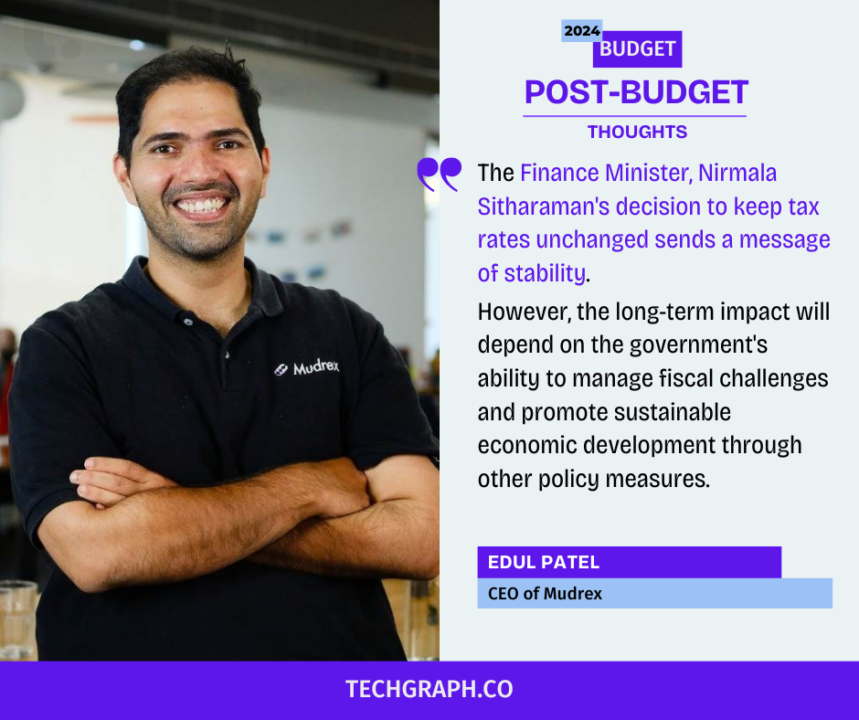
The Finance Minister, Nirmala Sitharaman’s decision to keep tax rates unchanged sends a message of stability. However, the long-term impact will depend on the government’s ability to manage fiscal challenges and promote sustainable economic development through other policy measures. As the interim budget sets the tone for the upcoming fiscal year, it will be interesting to observe how these decisions play out in the broader economic landscape.
Prashant Vasan, CEO at Madras Mandi
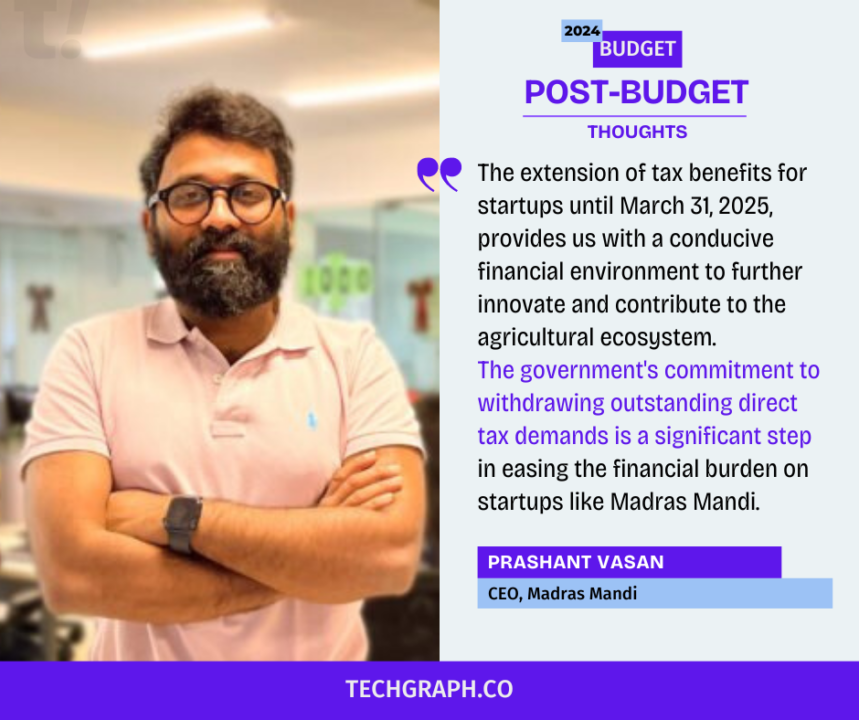
As Madras Mandi, a dynamic startup committed to revolutionizing the fresh produce landscape, we applaud the government’s forward-thinking measures outlined in the budget. The extension of tax benefits for startups until March 31, 2025, provides us with a conducive financial environment to further innovate and contribute to the agricultural ecosystem. Additionally, the tax-free status for investments by sovereign wealth funds and pension funds for an extra year aligns with our growth strategy, encouraging strategic partnerships and capital infusion into our startup.
The government’s commitment to withdrawing outstanding direct tax demands is a significant step in easing the financial burden on startups like Madras Mandi. This move not only fosters a favorable business environment but also empowers us to focus on our core objectives of fair trade, quality, and community building. We look forward to leveraging these budgetary provisions to continue our journey of growth, sustainability, and positive impact on the agricultural sector.
Jiger Saiya, Partner & Leader, Tax & Regulatory Services, MSKA & Associates – A Member Firm Of BDO International
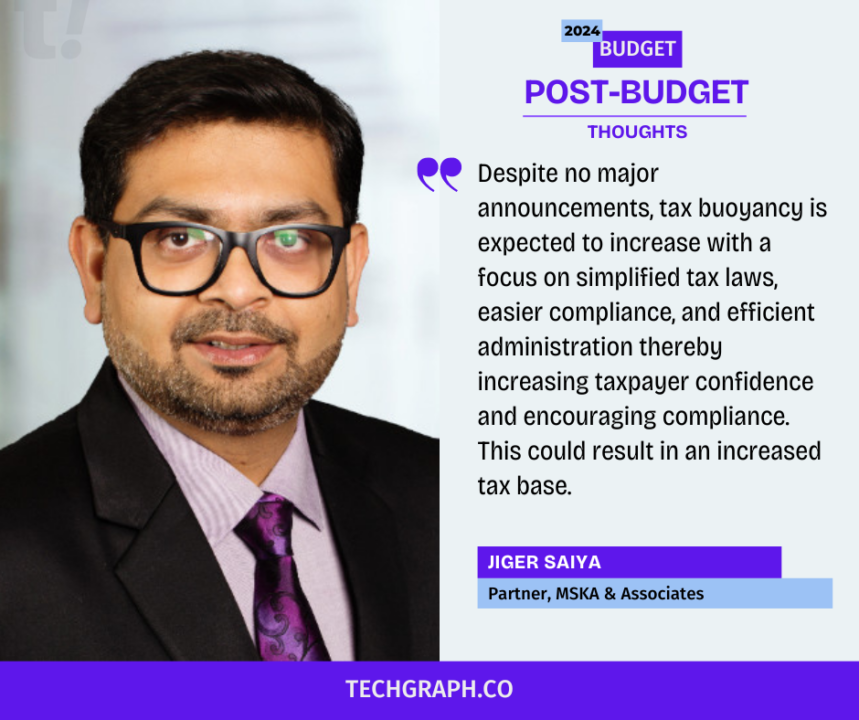
Despite no major announcements, tax buoyancy is expected to increase with a focus on simplified tax laws, easier compliance, and efficient administration thereby increasing taxpayer confidence and encouraging compliance. This could result in an increased tax base.
Pranay Bhatia, Partner, Tax & Regulatory Services, BDO India
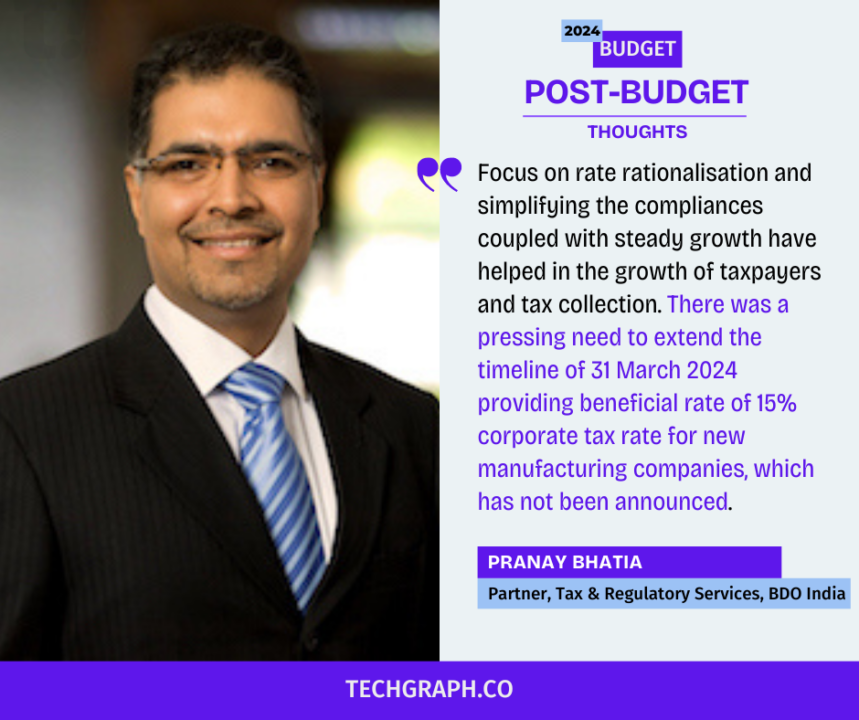
Focus on rate rationalization and simplifying the compliances coupled with steady growth have helped in the growth of taxpayers and tax collection. There was a pressing need to extend the timeline of 31 March 2024 providing a beneficial rate of 15% corporate tax rate for new manufacturing companies, which has not been announced.



